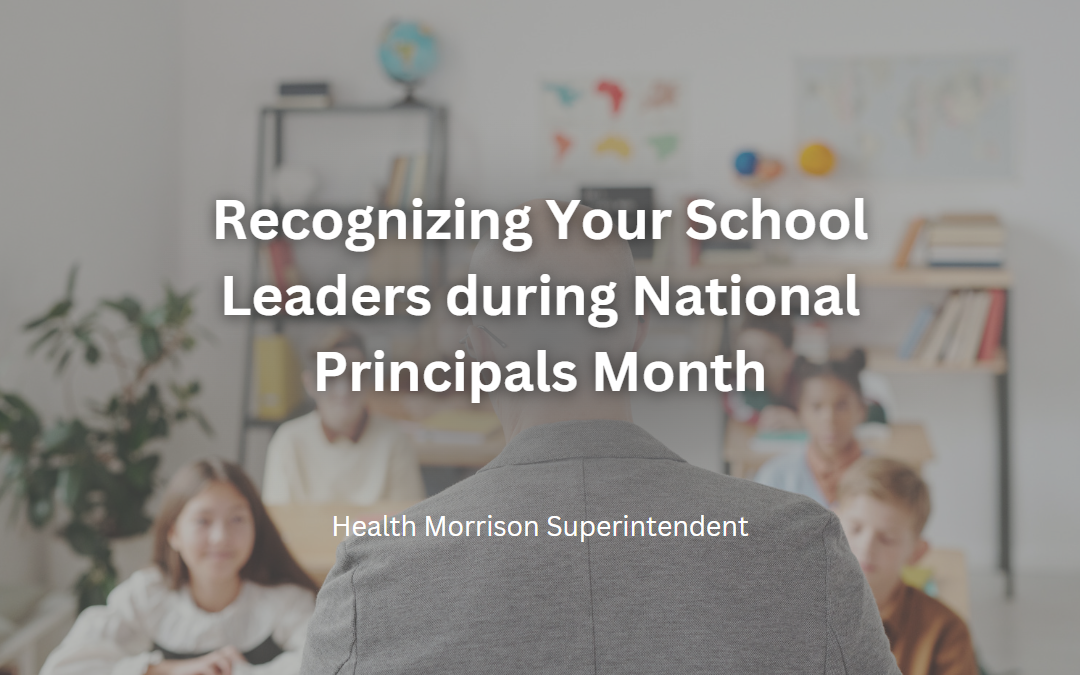“Great schools have great principals.” That slogan has been around for a long time, but it is a truism that continues to be relevant today. There are numerous research studies that speak to the impact of effective principals on school quality, teacher retention, and improved student learning. Having led three school districts in different parts of the country, I can attest to a critical reflection; I have never observed an excellent school led by an ineffective principal.
October is designated as “National Principals Month.” As we take time to recognize the dedicated leaders who serve in this important role, it is appropriate to consider ways to continue to commit to the development of these invaluable educators:
- Take the opportunity to promote the principal’s important role: This can be done in many ways. Bringing principals to a board meeting for recognition, highlighting different leaders in district communications, stopping into a faculty meeting, and thanking them for what they do are a few easy ways to highlight their work. Seek ways to have your best principals gain state or national recognition through numerous available award programs. Ensure you are promoting the best principals in your district and not necessarily the most popular. Assisting a principal gain recognition who does not display the qualities most important to the role sends a negative message to other principals who do.
- Invest in their evaluations: Just as many of the best teachers are leaving the profession, so too are principals, and for the same reasons. Great principals want meaningful feedback regarding their work. They don’t want superficial praise and pats on the back. The best principals want to continue to grow in their development to broaden their ability to serve. Make sure that you are using quality evaluation tools, instruments and processes that can be nationally benchmarked. Make sure those responsible for principal evaluations are treating the process with respect and urgency; many principals across the country share that they oftentimes receive an evaluation to sign well past district deadlines, containing no actual reflections regarding the authentic work they do. This should never happen.
- And, invest in their professional development: Much of the professional development for principals across the country is often the same for all school leaders and not always job-embedded. Districts should ensure that while there may be some training all principals need (new technology, instructional materials, etc.) true professional development should be personalized to the unique needs of the individual. This may mean taking monies allocated to PD and allowing principals to seek conferences and training outside of the district. At a time with public school choice growing, and resources tightening, the capacity building school leaders may need might be outside of traditional public education. Professional development in marketing and branding, project management and resource allocation might be better replicated by private sector providers than conventional K-12 solutions.
- Take the time to understand and support their career aspirations: While many principals may be exactly where they want to be with their jobs, others may want different experiences in the future. This could be a principal in a more affluent school wanting to lead a Title 1 campus or an elementary leader wanting to consider a secondary experience. Or, it may be a school-based leader who desires to serve at a district level and ultimately be a superintendent. Taking the time to get to know what they are thinking, and supporting these considerations, when there is agreement, is a strong way to show your focus on their professional growth. Having them serve on committees, or district intern programs are good ways to support such requests.
The role of the principal is vital to a school’s success and there has never been a greater need for dedicated leaders to serve in this capacity. Taking time during October to recognize the contributions of these true servant leaders is a small, but important, way to demonstrate the critical role they play in K-12 education.

